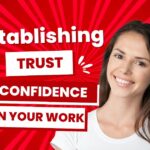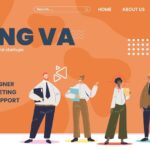How to Structure a Strong Answer to ‘Tell Me About Yourself’ in an Interview
Learn how to structure a strong answer to 'Tell Me About Yourself' in an interview. Find tips, sample answers, and techniques to impress interviewers.
In the video titled “How to Structure a Strong Answer to ‘Tell Me About Yourself’ in an Interview,” presented by Jeff Su, you will learn valuable tips on how to effectively answer this crucial interview question. Jeff emphasizes the importance of setting the right tone and boosting your confidence from the start. He advises against sharing your life story, which can bore interviewers, and instead focuses on a simple and strong answer structure using the Present, Past, and Future format, the Highlight Method, and providing sample answers and examples. Whether you’re a fresh graduate or an experienced professional, this video offers a helpful resource to help you structure your response effectively and avoid common mistakes in answering “tell me about yourself.” Good luck in your next interview!
Jeff’s video on structuring a strong answer to the “tell me about yourself” question in an interview provides valuable advice and techniques. By focusing on the Present, Past, and Future answer structure, the Highlight Method, and providing sample answers and examples, Jeff teaches you how to craft a compelling response that will set the right tone and impress interviewers. He emphasizes the importance of capturing their attention without delving into unnecessary personal details. Whether you’re a fresher or an experienced professional, this video offers valuable insights to help you ace your next interview.

The Importance of a Strong Answer
When it comes to job interviews, the question, “Tell me about yourself,” holds significant importance. Not only does it set the tone for the rest of the interview, but it also provides you with a unique opportunity to make a strong first impression and boost your confidence right from the beginning.
Setting the tone for the interview
The way you answer the “Tell me about yourself” question sets the tone for the rest of the interview. It gives the interviewer an initial glimpse into who you are, what you bring to the table, and how well you can articulate your thoughts. By crafting a strong and concise response, you can capture the interviewer’s attention and make them interested in hearing more about your qualifications and experiences.
Boosting your confidence
Starting off an interview on the right foot can do wonders for your confidence throughout the entire process. When you deliver a well-structured and impactful answer to the “Tell me about yourself” question, you instantly gain a sense of control and command over the conversation. This confidence will shine through in your subsequent responses, making you appear more polished and competent in the eyes of the interviewer.
Common Mistakes to Avoid
While answering the “Tell me about yourself” question, it’s essential to steer clear of common mistakes that can hinder your chances of leaving a positive impression on the interviewer.
Telling your life story
One common mistake many candidates make is providing a lengthy and detailed account of their entire life story. While it’s important to provide some relevant background information, going into unnecessary details can bore the interviewer and detract from your qualifications for the position. Remember, the purpose of this question is to give a concise overview of your professional journey, not to delve into personal anecdotes or unrelated experiences.
Boring the interviewer
Another mistake is delivering a response that fails to engage the interviewer. If your answer is too generic or lacks enthusiasm, it can come across as dull and uninteresting. To avoid this, focus on highlighting the most impactful and relevant aspects of your background, making sure to convey your passion and motivation for the position. By keeping the interviewer engaged, you increase your chances of leaving a lasting impression.
The Present, Past, and Future Answer Structure
To structure a strong answer to the “Tell me about yourself” question, it can be helpful to follow the Present, Past, and Future format. This format allows you to provide a well-rounded overview of your current situation, past experiences, and future goals.
Explaining who you are currently
Start by providing a snapshot of your current professional capabilities. This should be a brief summary of your current role, the measurable success metrics you have achieved, and any recent accomplishments you take pride in. For example, if you’re a professional, your current section may look like this:
“I am currently working as a Management Consultant at Ernst and Young, focusing on financial shared service center projects. My primary contribution to the team has been as the lead trainer for client organizations adopting new SAP systems. Additionally, I have connected marketing activities together through market research to identify future business development opportunities. One recent case I would like to share is how I compiled data on B2B marketing trends in China using a free trial of eMarketer, ultimately helping my senior manager close a $500,000 deal.”
Discussing your past experiences
After presenting your current situation, it’s essential to highlight key aspects of your past experiences that are relevant to the role you’re applying for. Identify two to three attributes that align with the requirements of the position, such as communication skills, stakeholder management, attention to detail, or strong analytical abilities. Then, go through your experiences, projects, internships, or leadership roles to find examples that demonstrate these attributes. For instance, if you’re a student applying for a marketing position:
“As the coordinator of a business club activity, I was responsible for planning, executing, and tracking our weekly workshops. As this involved a significant amount of promotional marketing materials such as financial flyers and email newsletters, I took the initiative to try out free online tools like Canva and MailChimp to better engage our members. After other student organizations noticed our new marketing materials, they actually sought help from us. As a result, I conducted group training for 30 other activity coordinators, with a satisfaction rating of 98%.”
It’s important to note that the same experiences can be tailored to emphasize different attributes depending on the role you’re applying for. For example, if the same activity coordinator is applying for an accounting position, they would focus on how they managed the annual budget and tracked expenses for the fraternity.
Highlighting your future goals
In the final part of your answer, provide a brief summary of why you are a perfect fit for the position. This should be a quick recap that emphasizes how your skills, experiences, and aspirations align with the role and the company. The goal is to make the interviewer envision why it makes perfect sense for you to be part of their team. Building off the previous examples, the future section for the event coordinator applying for an accounting position might look like this:
“As someone who has managed the fraternity’s finances for the past year, I have enjoyed applying the concepts I learned in accounting courses to real-life scenarios. This has further solidified my interest in pursuing a full-time career in accounting. Combining my experience with an international background, I believe I would be a valuable asset to the financial advisory services team at Ernst and Young.”
The Highlight Method
An effective technique to keep your answer concise and impactful is to use the Highlight Method. This method involves selecting key points or stories from your overall narrative and including them as highlights within your answer. By focusing on these highlights, you can ensure that your response remains succinct and engaging.
Selecting key points to emphasize
To apply the Highlight Method, identify the most impressive and relevant aspects of your background. These could include achievements, projects, or experiences that showcase your skills and align with the position you’re applying for. For example, if you were part of a team that closed a significant deal, make sure to mention it as a highlight.
Keeping your answer concise
When incorporating the highlights into your answer, remember to keep it concise. Only include the necessary details that directly relate to the job and omit any extraneous information. The goal is to provide a compelling overview of your background without overwhelming the interviewer with excessive details or unrelated stories.

Providing Sample Answers and Examples
To help you understand the concepts discussed so far, here are two sample answers tailored to different backgrounds: one for a professional and one for a student.
Sample answer for a professional
If you’re a professional applying for a position, your answer could look like this:
“Currently, I am a Product Marketer at Google, responsible for the large Greater China region. My main focus is on App advertising campaigns, a Google product aimed at app developers. Specifically, I have two objectives: attracting new Google app developers as much as possible and increasing product adoption rates among existing app advertising clients. My team and I achieve these goals through a combination of online marketing campaigns, offline events, and content marketing. One campaign I helped launch was the ‘Start on Android China’ initiative, where we leveraged resources from the Play, Ads, and AdMob teams to offer comprehensive training camps for app developers in the Greater China region. The purpose was to address pain points at each stage of their app development journey. One notable achievement was when we decided to transition from a three-day offline event to a three-week online event. This resulted in a five-fold increase in the number of qualified registrations before the marketing, and I became the key account manager for approximately 30 B2C exporters from China. With only one person able to cover so many clients, I actually created YouTube videos to better engage customers. Interestingly, you can still find those videos on YouTube. Prior to joining Google, I spent two years as a Management Consultant at Ernst and Young, one year in New York City, and another year in Shanghai. I was involved in various projects ranging from supply chain management to shared service centers. Given the nature of these projects, I often found myself as the sole onsite consultant, which allowed me to develop my communication and relationship management skills. Over the past six years, having primarily held client-facing roles, I believe my developed communication skills along with my international background would make me a valuable asset to your global business development team.”
Sample answer for a student
If you’re a student applying for a position, your answer could be structured as follows:
“In my current research field, which centers around marketing, I have been actively involved in various classroom projects, internships, and leadership experiences. As the coordinator of a business club activity, I was responsible for planning, executing, and tracking our weekly workshops. Since this entailed a significant amount of promotional marketing materials like financial flyers and email newsletters, I took the initiative to try out free online tools like Canva and MailChimp to better engage our members. After other student organizations noticed our new marketing materials, they actually sought help from us. As a result, I conducted group training for 30 other activity coordinators, with a satisfaction rating of 98%. Some of you may be thinking, ‘Well, Jeff, her experiences are marketing-related, so that’s an easy answer.’ Well, imagine the same activity coordinator applying for an accounting position. In that case, the emphasis would be on how she managed the annual budget and tracked expenses for the fraternity. As you can see, the same experiences can and should be applied to highlight different attributes that you want to emphasize. Finally, in the future of the answer, it’s a quick 30-second summary where you can emphasize why you are a perfect fit for the position. The purpose is to make the interviewer envision why it makes so much sense for you to be part of their team. Building off the previous example, the future section for the event coordinator applying for an accounting position might look like this: ‘As someone who has managed the fraternity’s finances for the past year, I have enjoyed applying the concepts I learned in accounting courses to real-life scenarios. This has further solidified my interest in pursuing a full-time career in accounting. Combining my experience with an international background, I believe I would be a valuable asset to the financial advisory services team at Ernst and Young.'”
Applying the Answer Structure to Different Fields
To make your answer more tailored and relevant to the specific job requirements, it’s crucial to adapt the answer structure discussed earlier to the industry or field you’re applying to. By doing so, you can effectively demonstrate your skills, experiences, and qualifications in a way that resonates with the hiring manager.
Tailoring your answer to the job requirements
When answering the “Tell me about yourself” question, consider the key skills and experiences the job requires and emphasize those aspects in your response. By aligning your answer with the job requirements, you demonstrate to the interviewer that you have the necessary qualifications and understand the specific needs of the role.
Demonstrating relevant skills and experiences
When discussing your past experiences, focus on highlighting the ones that directly relate to the skills and experiences needed for the position you’re applying for. This way, you can showcase your proficiency and demonstrate a track record of success in areas that are most valuable to the role.
For example, if the job requires strong project management skills, emphasize your project management experience and the successful outcomes you’ve achieved. Similarly, if the role values problem-solving abilities, mention specific instances where you have effectively resolved complex challenges. In short, by tailoring your answer to the specific field, you can showcase your expertise and stand out as a strong candidate.

The Importance of Confidence and Impactful Achievements
In addition to the structure and content of your answer, exuding confidence and highlighting impactful achievements is crucial to impressing the interviewer.
Showing confidence in your abilities
Confidence is key in any job interview. By showcasing your self-assurance in your response to the “Tell me about yourself” question, you convey to the interviewer that you believe in your capabilities and are ready to take on new challenges. Maintain good eye contact, speak with a clear voice, and use confident body language throughout your answer.
Highlighting significant accomplishments
To leave a lasting impression, it’s important to mention significant accomplishments that demonstrate your ability to bring value to the role. These accomplishments should align with the needs of the position and emphasize your impact in previous roles or experiences.
For example, if you were part of a team that achieved record sales or successfully implemented a new system, make sure to mention it as one of your highlights. By highlighting these accomplishments, you prove that you can deliver tangible results, further showcasing your value as a potential employee.
Further Tips and Strategies
To ensure you deliver a strong answer to the “Tell me about yourself” question, here are some additional tips and strategies to consider.
Using the STAR method for answering
The STAR method (Situation, Task, Action, Result) is a helpful framework for structuring your responses to behavioral questions. Incorporating this method into your answer can provide a clear and organized structure, making it easier for the interviewer to follow your story and understand the impact of your actions.
When applying the STAR method, start by describing the Situation or Task you faced, then explain the specific Actions you took to address it, and conclude with the positive Results that were achieved. This method allows you to provide a comprehensive and concise response that demonstrates your problem-solving abilities and highlights your accomplishments.
Practicing your answer in advance
To ensure that you deliver a confident and well-structured response during the interview, practice your answer in advance. Take the time to rehearse your answer, paying attention to the overall flow and the specific points you want to emphasize. Practice in front of a mirror or with a friend, and solicit their feedback to further refine your response.
By rehearsing your answer, you can familiarize yourself with the content, improve your delivery, and reduce the likelihood of stumbling or rambling during the actual interview. Remember, the more you practice, the more comfortable and confident you will become.
How to answer the question tell me about yourself as a virtual assistant
When answering the question “Tell me about yourself” in a virtual assistant interview, it’s important to highlight your relevant skills, experience, and qualities that make you a strong candidate for the role. Here’s a step-by-step guide on how to craft an effective answer:
- Start with a brief introduction: Begin by introducing yourself and mentioning your professional background as a virtual assistant. Highlight the number of years of experience you have in this field and any specific industries or clients you have worked with.
- Discuss your skills and expertise: Talk about the specific skills and expertise you possess that make you a valuable virtual assistant. Mention skills such as time management, communication, organization, problem-solving, and attention to detail. Provide examples of how you have successfully applied these skills in previous roles.
- Highlight your experience with technology and software: Virtual assistants are often required to work with various tools, software, and platforms. Discuss your comfort level and experience with using technology as a virtual assistant. Mention specific tools and software you have used, such as project management tools, communication platforms, time-tracking software, and CRM systems.
- Emphasize your communication skills: Effective communication is crucial for virtual assistants. Explain how you ensure clear and efficient communication with clients and colleagues. Mention the communication channels you use, such as email, video conferencing, and instant messaging. Discuss your approach to active listening, asking clarifying questions, and providing regular progress updates.
- Address handling a high volume of emails and inquiries: Virtual assistants often deal with a high volume of emails and inquiries. Explain how you handle this by prioritizing and organizing your workload. Discuss strategies such as designating specific time blocks for checking and responding to emails, using filters and labels for better organization, and using templates or pre-approved responses for common inquiries.
- Demonstrate your adaptability to new tools and technologies: Virtual assistants need to be adaptable and willing to learn new tools and technologies. Talk about your experience in adapting to different software applications and your eagerness to learn and embrace new technologies. Mention how you proactively seek opportunities to learn, explore online resources, and attend training sessions.
- Prepare thoughtful questions: Towards the end of the interview, the interviewer will usually ask if you have any questions. Prepare some thoughtful questions about the company culture, expectations for the role, and opportunities for growth to demonstrate your interest.
Remember, these suggested answers are just a starting point. Personalize them based on your own experiences and skills to provide authentic responses during your virtual assistant interview.
Conclusion
In conclusion, crafting a strong answer to the “Tell me about yourself” question is crucial for making a positive impression in a job interview. By following the Present, Past, and Future answer structure, incorporating the Highlight Method, and tailoring your response to the specific field or position, you can effectively convey your qualifications and leave a lasting impact on the interviewer.
Remember to exude confidence, highlight significant achievements, and incorporate the STAR method for answering behavioral questions. Lastly, don’t forget to practice your response in advance to ensure a polished and impactful delivery.
With these strategies in mind, you are well on your way to acing the “Tell me about yourself” question and setting yourself up for success in your next interview. Good luck!



